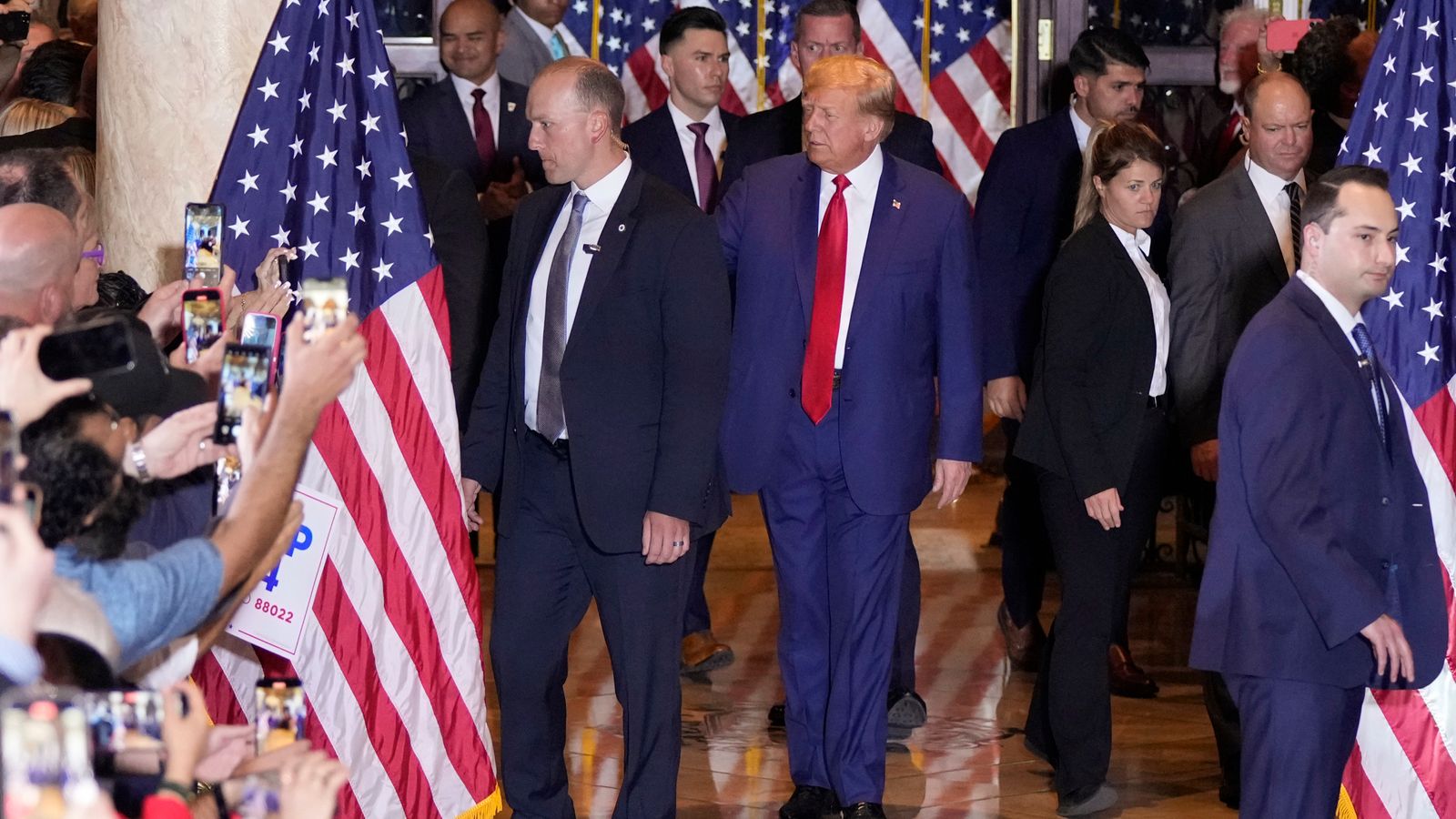

Donald Trump has been charged but any potential trial could be more than a year away.
After the former president pleaded not guilty to 34 felony charges of falsifying business, Judge Juan Merchan set the next court hearing for 4 December.
So what happens now?
Trump’s case is far from typical, and his lawyers say they intend to fight it aggressively with a blizzard of paperwork. That could push any trial past the timetable floated by the two sides and closer to the presidential election.
The state-by-state contests for the Republican nomination is scheduled for the first half of 2024. The party will formally select a nominee in mid-2024 to face the Democratic nominee.
If elected, Trump would not hold the power to pardon himself of state charges.
But putting a president-elect or president on trial for state charges would enter uncharted legal waters.
Trump has accused Manhattan District Attorney Alvin Bragg, an elected Democrat, of targeting him for political gain and could try to seek a dismissal of the charges on those grounds.
He has also complained that Mr Merchan, the judge, treated his company unfairly when he oversaw a criminal tax-fraud trial last year.
This morning, Trump said the case should be moved from heavily Democratic Manhattan to Staten Island, a more conservative part of New York City.
To do this, Trump’s lawyers would have to file a motion showing why Mr Merchan is unqualified to handle the case.
Trump will likely pursue other avenues as well, some of which could present thorny legal issues that take time to resolve.
Falsifying business records is typically a misdemeanour punishable by no more than one year in prison under New York state law.
But Mr Bragg elevated those charges to felonies, each carrying a maximum of four years in prison, by arguing that Trump falsified those records to cover up campaign-finance violations.

/cdn.vox-cdn.com/uploads/chorus_asset/file/24916158/IMG_2125.jpg)
/cdn.vox-cdn.com/uploads/chorus_asset/file/24759174/hero_about_living_room.png)
/cdn.vox-cdn.com/uploads/chorus_asset/file/25231421/UI___Whimsical_tiger_as_oil_painting.jpg)